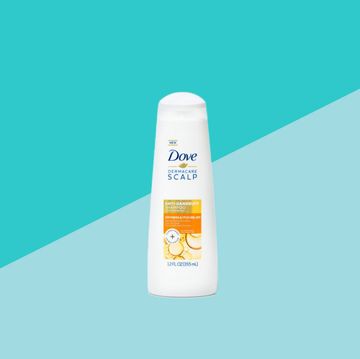You'd be surprised to know how many hair-related myths you've probably been told over time (and believed). Here's the truth, once and for all, about your hair
Myth #1: Washing your hair too much causes more to fall out.
The truth: Washing makes you notice hair in the drain, but it doesn’t cause hair loss. Each hair goes through growing, resting, and falling-out phases, explains Jeffrey Benabio, M.D., a dermatologist with Kaiser Permanente in San Diego. At any given time, about 10% of hairs are in the shedding phase. Shampooing less often will keep a few of those in place by reducing friction, but they are on the way out. “Washing less often doesn’t change the number of hairs in the falling-out phase and doesn’t reduce the number that fall out on average each day,” Dr. Benabio says. So if you haven’t shampooed in a while, you may see a big tangle of strands come out once you do, but it’s only because this was their first chance to fall.
Myth #2: Dandruff means you have a dry scalp.
The truth: Dandruff is a red flag for inflammation, not dryness. Inflammatory conditions such as psoriasis, eczema, and allergic dermatitis can trigger flaking, according to Nava Greenfield, M.D., of Schweiger Dermatology in New York City. The most common cause of dandruff is seborrheic dermatitis, which is brought on by a combination of inflammation and an overgrowth of yeast in your scalp, but it can be exacerbated by stress, certain medications, and conditions like Parkinson’s disease. To treat flakes, start by washing your hair frequently—daily if possible—with an over-the-counter anti-dandruff shampoo such as Nizoral or Head & Shoulders, says Dr. Benabio. Lathering well and leaving the shampoo on your hair for a full five minutes will give the medication time to work. If that doesn’t help, visit a dermatologist.
More From Prevention

MYTH #3: Stress or fear can make you go gray overnight.
The truth: Stress can bring on grays, but the process takes months. That’s because a sudden, intense onset of stress (such as a death, a major surgery, or a serious illness) can damage the melanocyte cells that produce hair pigment. But those cells are located deep beneath the scalp, so the resulting gray would take months to become visible, says Adam Friedman, M.D., chair of dermatology at the George Washington University School of Medicine and Health Sciences in Washington, DC. Other factors, such as conditions including hypothyroidism and deficiencies in B12 or copper, may also compound stress-induced graying.
Myth #4: Cutting your hair can help it grow faster and longer.
The truth: Sorry, a trim will not make your hair grow faster or longer, according to Michele Farber, M.D., a dermatologist with Schweiger Dermatology in Philadelphia. Hair growth emanates from the follicle beneath the surface of your scalp, so while cutting your hair can make it look thicker and more volumized, a trim has no impact on growth. You can expect your hair to gain approximately 1/2 inch a month, but how long each strand gets before falling out depends on how long your genetically determined hair-growth cycles last, says Elizabeth Bahar Houshmand, M.D., a Dallas-based dermatologist. If you take care of your hair, it will look its best, but you can’t speed up your growth cycle.
Myth #5: You need supplements to fix dry, brittle, limp strands.
The truth: For more lustrous locks, you need to correct whatever is stressing your hair in the first place. If it’s physical damage, cut back on heat styling, swimming without a cap, tight hairstyles, and frequent coloring. If you are underweight, have dropped a lot of weight suddenly, or eat very little protein, boosting your intake could help. Adding healthy fats and foods high in B vitamins (such as salmon, leafy greens, eggs, red meat, and legumes) may help too, says Brooke Alpert, R.D., founder of B Nutritious in New York City. As for biotin supplements to grow more hair, “There’s minimal evidence that biotin helps with hair growth, and there is concern that it can interfere with specific blood tests, which resulted in an FDA warning,” says Dr. Friedman. Some experts do recommend Viviscal, a pill containing shark cartilage, niacin, vitamin C, and zinc, and there are small clinical trials with promising results, but these were funded by the company itself.
Kate Rockwood is a freelance writer based in New York.












